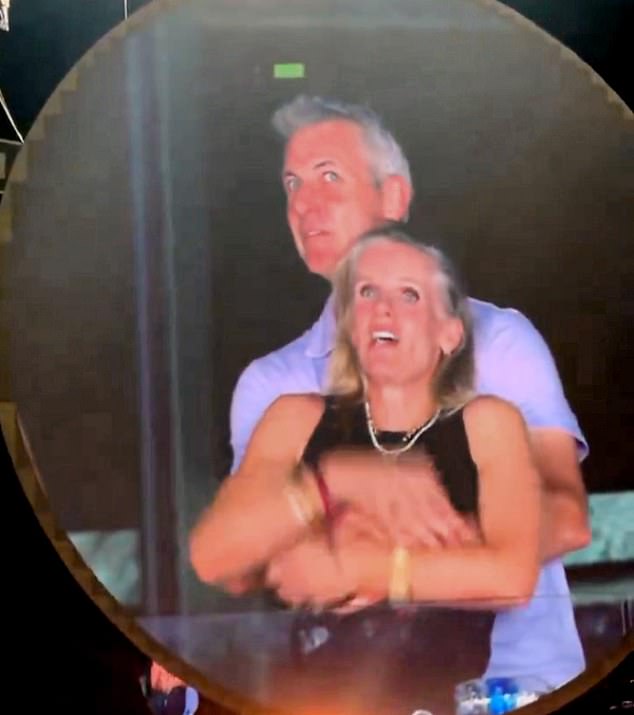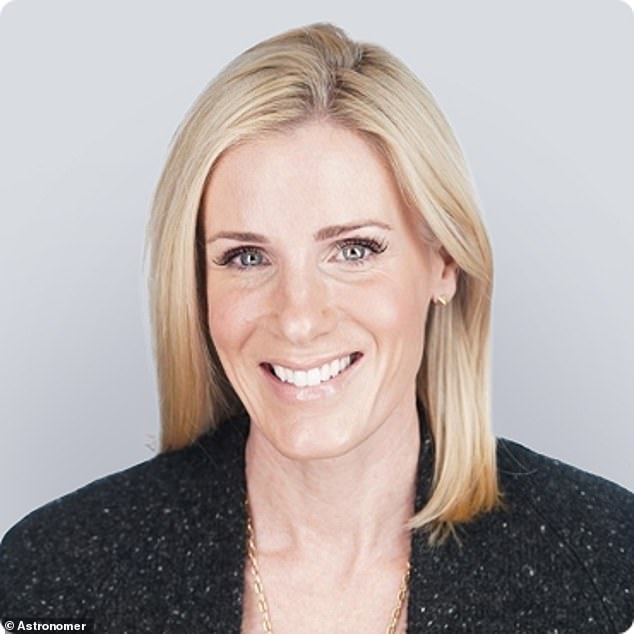An affair, whether in gossip columns or real life, fascinates us, as the ‘Coldplay couple’ have proven.
When married tech CEO, Andy Byron, and his married head of human resources, Kristin Cabot, were caught on a ‘kiss cam’ at a Coldplay concert in Boston last week, millions watched the video and hundreds of memes and commentaries quickly followed.
His wealth, their deceit, the very public ‘outing’ and perhaps the pleasure we get from comeuppance, particularly when privilege is involved, has kept the story alive. The very public reveal of two attractive people who are having sex (we presume) but are married to others has proved to have a timeless appeal, leaving some with a pleasing sense of moral superiority and others feeling ‘Schadenfreude’.
What is less well understood, much more enduring – sometimes lifelong – is the disastrous impact of an affair on children. Kristin is a stepmother to her husband Andrew Cabot’s children, while Byron and his wife have two sons together.
Parental infidelity can profoundly damage a person’s capacity for loving relationships. Trust is at the centre of the couple and family. If trust is broken early on in life by a parent, it is extremely hard to regain, especially at an unconscious level.
As a psychoanalyst, I have seen many adult patients who remain badly affected by a parent’s emotional or sexual disloyalty in their childhood. Divorce law reform in 1971 means a great deal of research exists on the impact of divorce on children, exploring how their educational and social outcomes are affected.
However, less is known about how infidelity determines a child’s ability to have relationships in adulthood. Statistics about affairs are unreliable but affairs seem to be most common in middle age according to the Institute of Family Studies.
In my consulting room these patients speak of low self-esteem and feeling responsible, as well as persistent difficulties with trust. Alongside this I have noticed repetitions, whereby people embark on affairs themselves, despite the pain they have been caused by them.

Astronomer CEO Andy Byron and Astronomer’s head of HR Kristin Cabot’s awkward kiss cam footage has fuelled endless memes and jokes on social media

Mr Byron, whose estimated net worth is $60million, resigned as CEO of Astronomer in wake of the humiliating scandal

Ms Calbot has remained at the AI company, but there is growing uncertainty over her position
An affair is often a reason for seeking help in psychotherapy, and I believe the motives for an affair are often deeply intertwined with someone’s relationship history and unconscious fantasy. In other words, our childhood experience of relationships profoundly influences us as adults.
My book Affairs: True Stories of Love, Lies, Hope and Desire seeks to understand the reasons why apparently rational people put themselves in such jeopardy, risking damage to loved ones and themselves. To help me understand this secretive behaviour, I invited people involved or affected by affairs to contact me, and I was overwhelmed with replies.
Louise was 45. She told me she’d had serial affairs with unavailable married men. Her husband was faithful, but she found him cold and uninteresting. The last affair she had, which prompted her to see a therapist, was sexually thrilling until her lover, without warning, returned to his wife.
‘It was not until I saw that I was constantly chasing men who would leave me that I realised in some way I was repeating something very painful,’ she said. ‘I was always hoping to get my father back, who had left my mother, who he felt was “dull”, for another woman. Who he also left a few years later. I realised I almost always had to feel second best.
‘The feeling of being “the chosen one” was just not something I could recognise in any way. My affairs were a terrible repetition, and I had married a man I found dull but who would never leave me.’
Ben, a single father of a 15-year-old daughter, said his mother’s overt cheating on his father meant he could never face marriage, or a committed long-term relationship. From the age of nine, his mother had shared her crushes and pursuits with him when he was far too young to understand.
He said: ‘I wasn’t interested in what she was doing and I felt it was forced in my face, presumably to alleviate her guilt. I didn’t want to know. I just wanted to get on with my life and for her to get on with my father.’
Children are scrupulously fair with their parents as well as generally not interested in their romantic interests, either inside or outside their relationship. In Ben’s case, the result of his mother’s affairs meant he could never trust a woman enough to commit.

Juliet Rosenfeld’s book explores the psychological impact adultery can have on people
I was moved by the fact he had wanted to become a father, but he told me he felt disappointed and sad that he knew he could never live with his daughter’s mother. He felt his own romantic feelings for women had been overwhelmed by his mother’s affairs.
We often talk about children’s resilience and adaptability when parental relationships end – perhaps as it brings relief to parents who often feel guilty about ending a marriage. But children have to adapt – and so they do. They must believe what their parents tell them, and important emotional beliefs are set very early on by our primary caregivers. When everything changes – and the life you had is changed by an affair, difficulty in believing what you are told is hard to overcome.
An affair has primitive roots that consciously or unconsciously we all relate to. We have all been babies and shaped by the universal experience of the Oedipus complex. In ordinary language: this is how we learn to love. Neuroscience can now prove that how we are cared for shapes our own emotional capacity to form loving relationships.
It is critical for a child to realise at about nine months they are not the only apple of their mother’s eye – there is also a daddy (or a mummy, or work, siblings or other demands). This marks the moment we must begin to contend with the reality of seeking our own relationships, beginning with friendships in childhood.
But from this time onwards we are always aware of potential loss. A cheating parent shatters emotional developmental in ways that may not be obvious for many years, but that can continue to wreak havoc in adult relational life. Interest in the Coldplay couple will fade – but the devastation for adults devastated in childhood by betrayal will continue.












